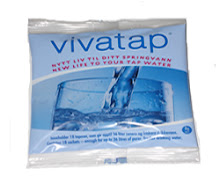Chlorine and your tap water
Chlorine has been hailed as the savior against cholera and various other water-borne diseases.
Its disinfectant qualities and economy of production have allowed communities and whole cities to grow and prosper by providing disease-free tap water to homes and industry. Some people have grown-up on tap water, and believe the taste of chlorine signifies purity and safety. Well, not necessarily so.
Chlorine is, essentially, bleach. And what comes out of most municipally delivered taps is, quite actually, a mild bleach solution. Is it healthy to drink bleach? Does your body require any certain amount of chlorine to remain healthy? Most certainly not.
Chlorine in tap water is dangerous, researchers worldwide agree. The chemical, which is added to drinking water to kill bacteria, is linked to cancer, birth defects and low sperm counts in men. According to ongoing research, trihalomethanes, a group of chemicals formed in drinking water during treatment by chlorine may be responsible for the health side-effects.
The municipalities are stuck. Environmental and public safety laws require most to maintain a chlorine residual throughout the water main delivery system. This is to retain disinfecting properties in the event of groundwater infiltration and other contaminations. Complaining to your local water department about the taste and odour will accomplish nothing. Chances are, they're doing their best, and meeting the laws. The most practical solution to the problem is for you to remove the chlorine yourself.
‘How?’ you might ask. There is a product available that can do this in 3 easy steps, and it is very cost efficient too... Vivatap



